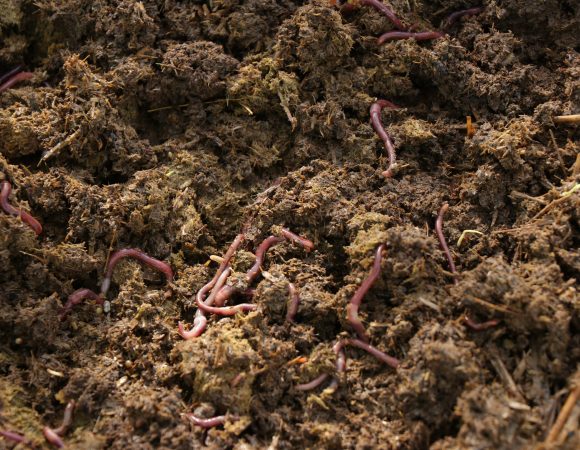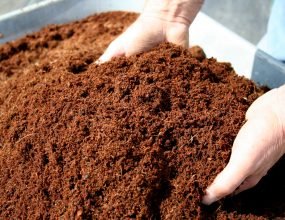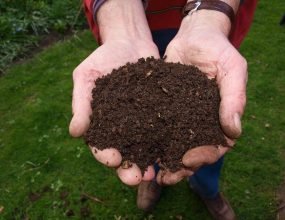“Vermicompost is the product or process of composting using various worms, usually red wigglers, white worms, and other earthworms, to create a heterogeneous mixture of decomposing vegetable or food waste, bedding materials, and vermicast, which are also called worm castings, worm humus or worm manure. It is the end-product of the breakdown of organic matter by an earthworm. These castings have been shown to contain reduced levels of contaminants and a higher saturation of nutrients than do organic materials before vermicomposting.”
Containing water-soluble nutrients, vermicompost is an excellent, nutrient-rich organic fertilizer and soil conditioner. While there are nutrients in worm castings, the real benefit to worm castings are the millions of beneficial microbes that they contain. Those microbes eat organic matter in the soil and release available plant nutrients. Fungi in the castings form symbiotic relationships to transport water and nutrients to the roots. They can also hold water in the soil and help with water management. Worm castings have at least 10 times more microbes than soil or regular compost. While vermicomposting is generally known as a nutrient rich source of organic compost used in farming and small-scale sustainable, organic farming, the process of vermicasting is being studied as a treatment for organic waste in sewage and wastewater plants around the world.
Worms eat food scraps, which become compost as they pass through the worm’s body. Compost exits the worm through its tail end. This compost can then be used to grow plants. Vermicompost is good for plants because the worms are eating nutrient-rich fruit and vegetable scraps and turning them into nutrient-rich compost.
For millions of years, worms have been hard at work breaking down organic materials and returning nutrients to the soil. Worms could eat any organic material. However, for the compost the best sources are raw fruit and vegetable scraps. Orange rinds and other citrus fruits, which are too acidic, and can attract fruit flies, should be avoided as well as cooked food and meat.
In addition to compost, the worms produce worm juice. This juice is also loaded with beneficial microorganisms which can be watered down and added to any kind of crops, even flowers. Some farmers are using the juice in modified hydroponic systems and calling it vermiponics.
Earthworms leave soil 5-11% richer in the essential plant nutrients of nitrogen, phosphorus and potassium than when they first ingest it. As an organic fertilizer, vermicompost is a substitute for synthetic fertilizer in soil-enriched vegetable production. As a soil conditioner, vermicompost is superior to traditional compost due to its ability to improve the soil structure and to increase its water-holding capacity.






